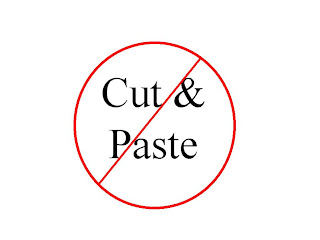.jpg) Image taken from - http://www.zunal.com/webquest.php?w=16733 - Was using this graphic legal??? (My idea)
Image taken from - http://www.zunal.com/webquest.php?w=16733 - Was using this graphic legal??? (My idea)Sure the above quote is common knowledge, i.e. the person's position and affiliation with said organization, but I too copied and pasted it verbatim, as it was what I need to attribute the statistics . . . at least I gave the attribution, right? (My idea)
Per the NTY article students can readily find the stuff they need online, yet because it isn't a physical entity it seems to immediately belong to them to manipulate and use as needed. Even if this was a physical entity, the fact that there is often no clear author or authority behind the information found, i.e. Wikipedia, means that it seems to be fair game for usage without attribution.
Per the NTY article students can readily find the stuff they need online, yet because it isn't a physical entity it seems to immediately belong to them to manipulate and use as needed. Even if this was a physical entity, the fact that there is often no clear author or authority behind the information found, i.e. Wikipedia, means that it seems to be fair game for usage without attribution.
Furthermore our world seems to be changing from the era of the 60s where uniqueness and authenticity was valued to an era in which students rather want to try on "many different personas" - "MyWord!: Plagiarism and College Culture" by Susan Blum.
The result to this modern information soceity is that we can't tell who did what, said what, or wrote what anymore. All of course is not a loss, as we are recreating things and connecting in various ways with the information. Ways we never could have imagined before. (My idea)
Notice my own week attempt to attribute ideas in this post - at least I tried!
I.e. these ideas are not my own, apart from the ones I noted as (My idea).
:<
The result to this modern information soceity is that we can't tell who did what, said what, or wrote what anymore. All of course is not a loss, as we are recreating things and connecting in various ways with the information. Ways we never could have imagined before. (My idea)
Notice my own week attempt to attribute ideas in this post - at least I tried!
I.e. these ideas are not my own, apart from the ones I noted as (My idea).
:<
Jana
